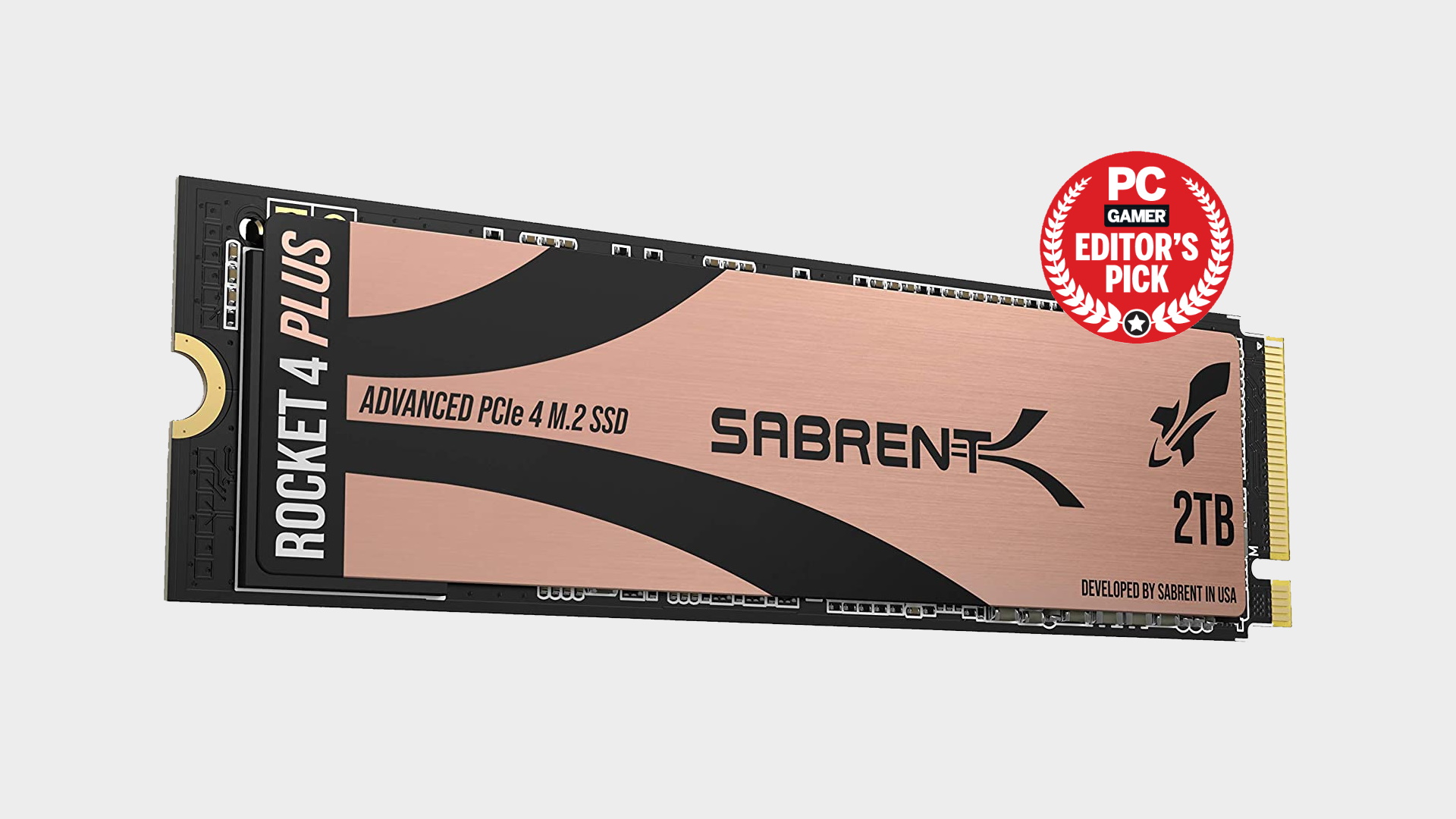Our Verdict
The Sabrent Rocket 4 Plus offers excellent synthetic performance and decent throughput in the real world, and all for a tempting price. Not quite the fastest around, but not far off.
For
- Strong synthetic throughput
- Speedy real-world performance
- Runs cool
Against
- Not quite the fastest
PC Gamer's got your back
The Sabrent Rocket 4 Plus is the first drive to use the new Phison E18 controller. This is the follow up to the immensely popular Phison E16 controller found in basically every first-gen PCIe 4.0 drive. No, seriously, that's the controller you'll find in everything from the Corsair MP600 to the Gigabyte Aorus to the Addlink S90 as well as plenty of Sabrent's drives.
Model: SB-RKT4P-2TB
Capacity: 2,000GB
Interface: PCIe Gen4 x4
Controller: Phison PS5018-E18
NAND: Micron B27 96-later TLC
Rated seq. read: 7,100 MB/s
Rated seq. write: 6,600 MB/s
Endurance: 1400 TBW
Warranty: 5 years
Price: $400 (£400)
That first-gen PCIe 4.0 controller was everywhere, and the reason for that was its throughput. It topped out at just over 5,000MB/s for reads, and 4,400MB/s writes, while the best PCIe 3.0 drives managed reads of 3,500MB/s and writes of just 2,500MB/s.
This new Phison E18 controller ups the ante significantly, offering sequential throughput of up to 7,100MB/s reads and 6,600MB/s writes. The theoretical limits of the interface are 8GB/s for both, so those figures aren't far off how fast you can expect PCIe 4.0 to go. It's incredibly fast basically, and on paper at least, the fastest drive to be released so far.
In order to hit these numbers, you're going to need a platform that supports it—as in you'll need a CPU and motherboard that supports the latest PCIe 4.0 interface. At the moment that limits you to a Ryzen 3000 or Ryzen 5000 CPU on an X570 or B550 motherboard. Intel is getting in on the superfast storage game shortly, with the launch of Rocket Lake, which is expected to touch down in March.
In case you don't know the name, Sabrent has been storming up the M.2 NVMe SSD charts for a little while now, and its Rocket brand has pushed storage forward on a number of fronts, including driving down pricing and producing QLC drives like Rocket Q that don't actually suck—thanks to judicious use of SLC and RAM caches.
Back to the Sabrent Rocket 4 Plus then, the model I'm looking at here is the more capacious 2TB drive, which rolls in at a sharp-intake-of-breath-inducing $400. The 1TB version costs $199, although the performance is slower too, at 7,000MB/s reads and 5,300MB/s writes. Both work out at $0.20 a gigabyte though, which is very competitive for a new drive. The other next-gen drives we've seen so far are the Samsung 980 Pro at $0.30/GB and the WD Black SN850 at $0.23/GB.
Sabrent offers the now-standard 5-year warranty for the drive, as long as you register when you buy it. This is good for 1,400TB Total Bytes Written (TBW), which is well above what you will reasonably manage in that warranty. Sabrent has used well-known components throughout, with the Phison Controller being joined by Micron NAND flash and SK Hynix RAM for the cache, so you shouldn't have any problems with this drive basically.
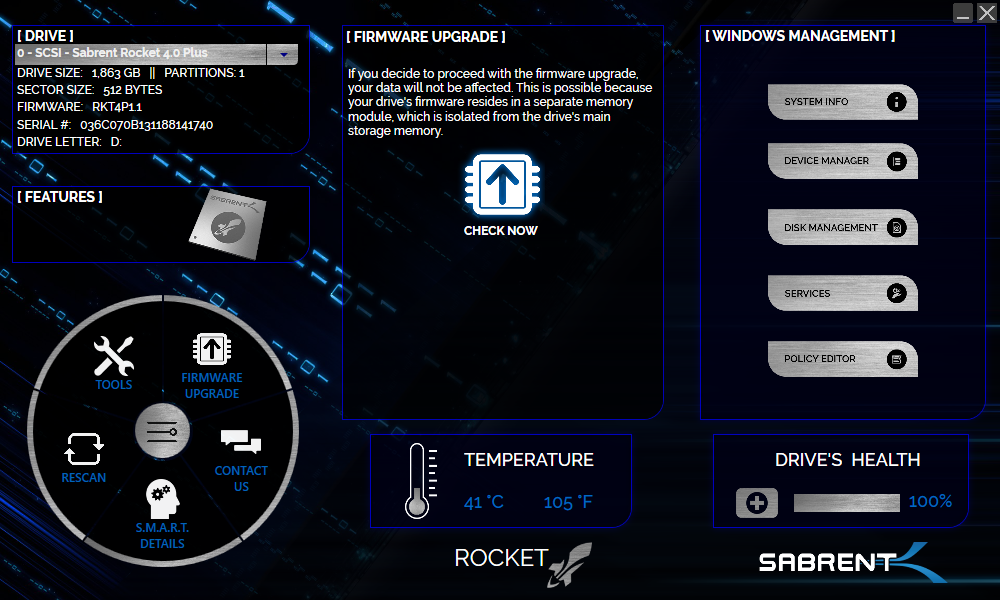
Apart from the tiny drive, which ships in a natty cigar case which is far too cute to be discarded after installation, there's not a lot else physically in the package. You do get a download link to a copy of Acronis True Image to help you transfer your current installation across though, and the Sabrent Rocket Control Panel gives you the lowdown on your drive's health. It's maybe not at the same level as Samsung's Drive Magician or Western Digital's Dashboard, but it covers everything you need succinctly.
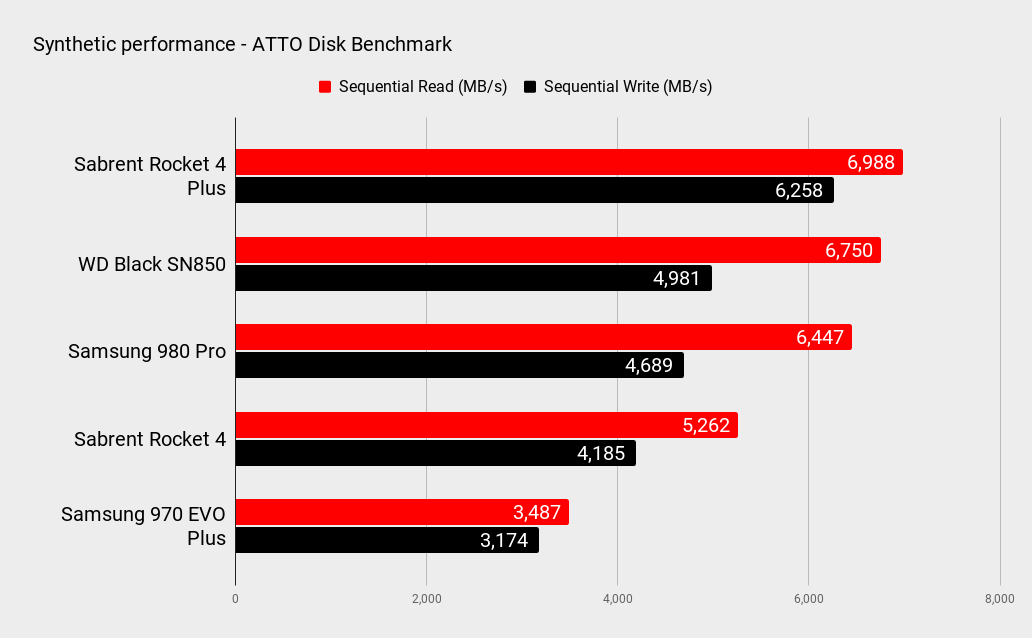
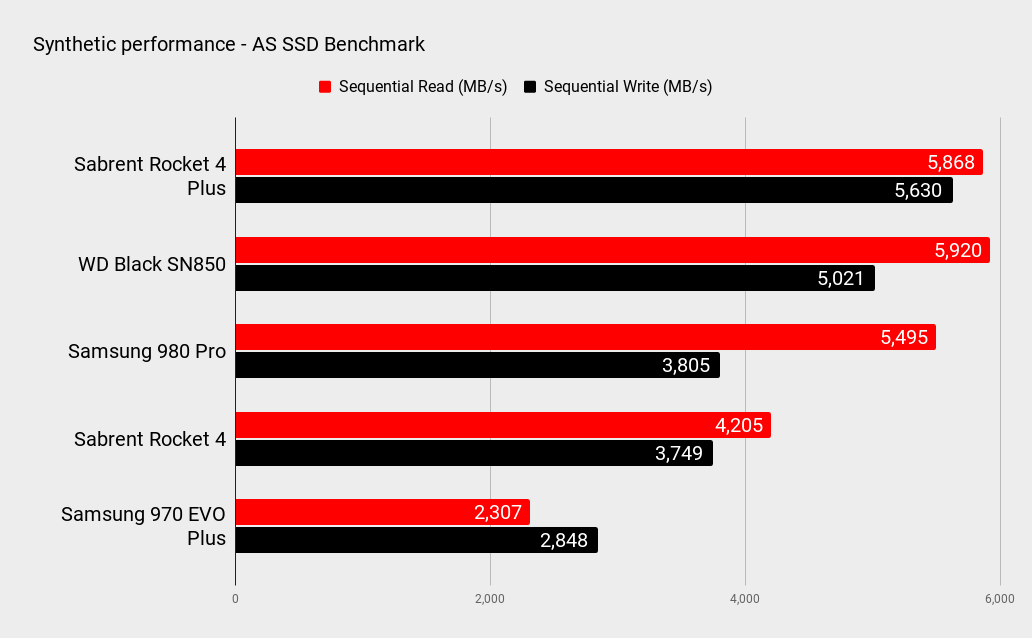
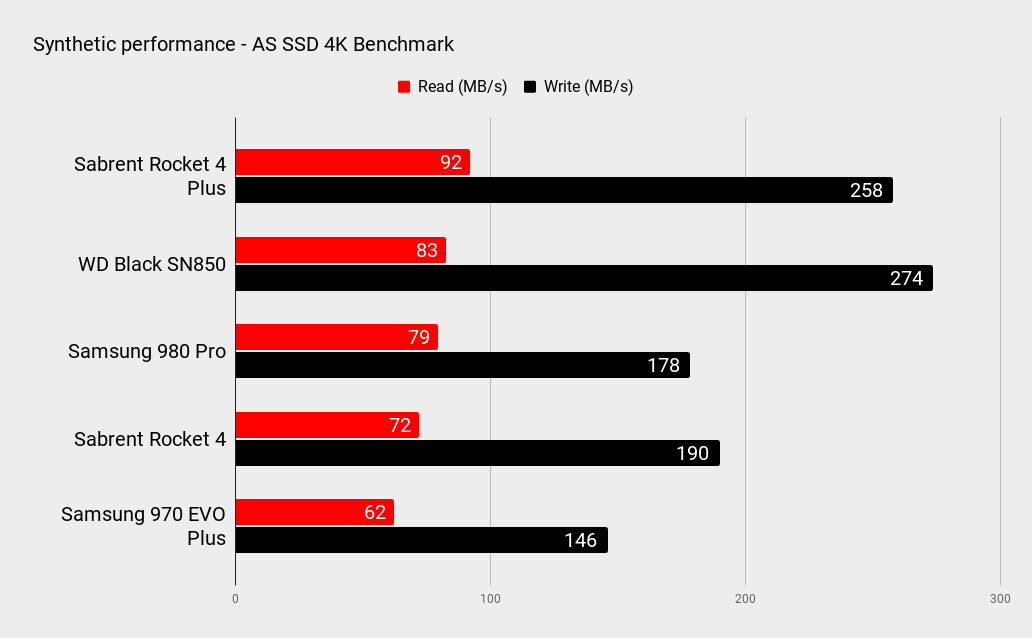
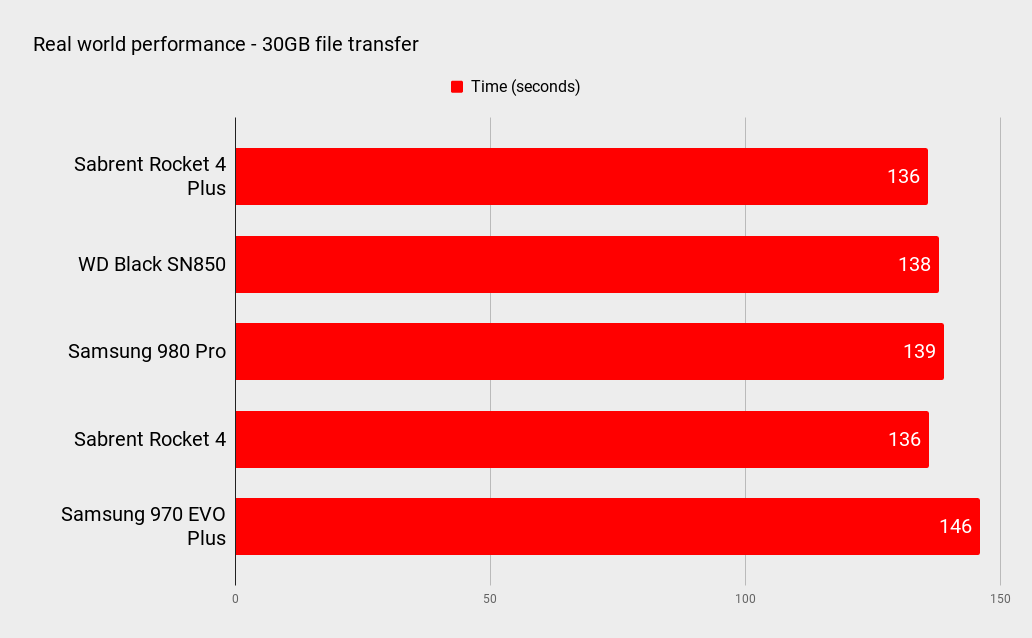
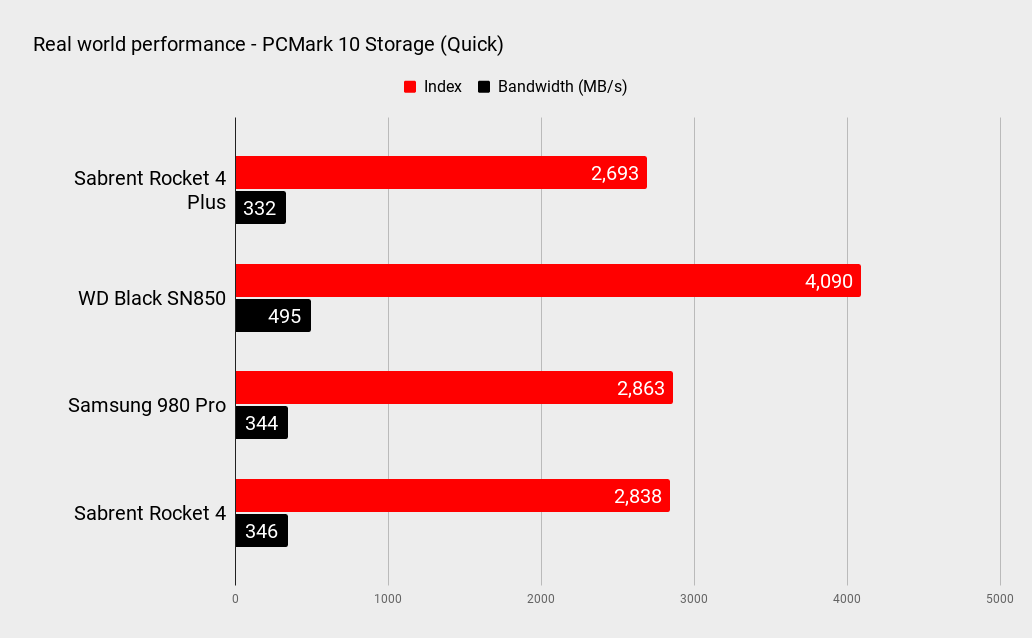
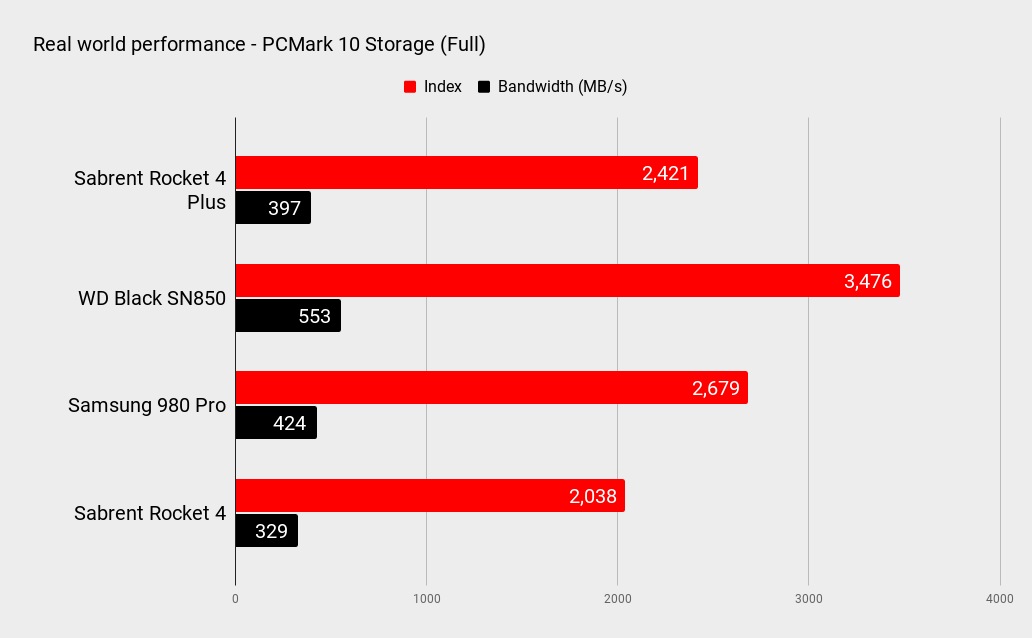
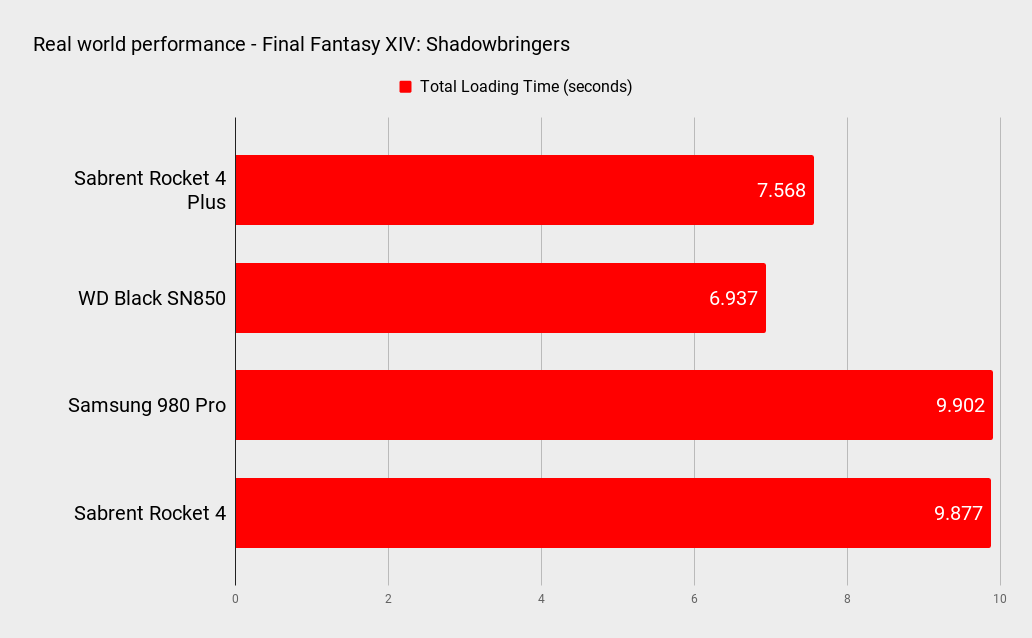
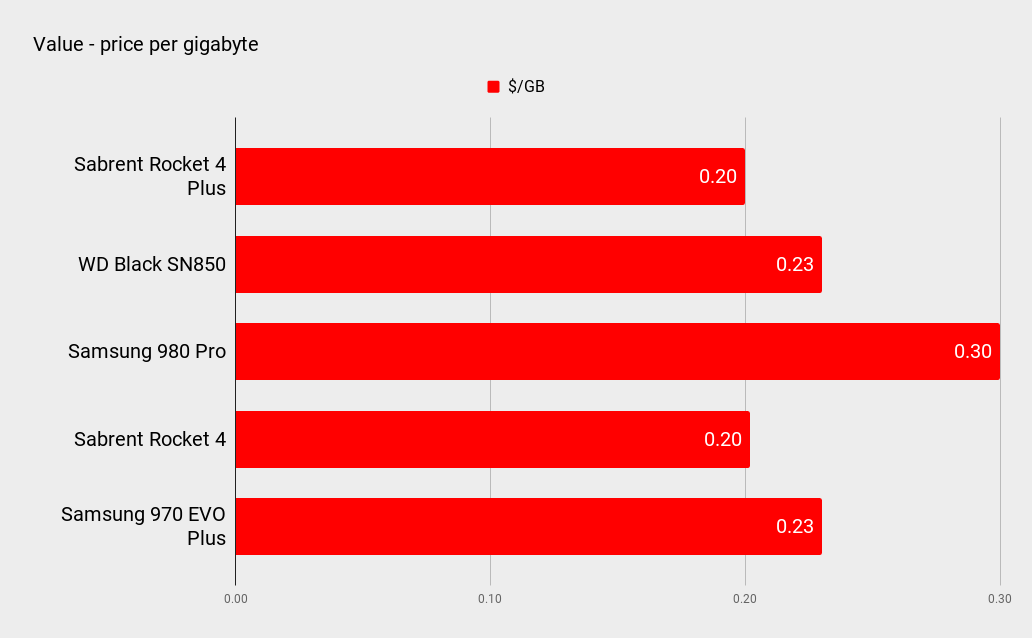
On to the performance, and it's here where Sabrent's latest drive impresses almost effortlessly, especially when it comes to the synthetic throughput. The sequential read and write figures in both benchmarks are impressive, but it's the write performance that stands out most, leaving the competition eating dust. The Samsung 980 Pro in particular really struggles to keep up with the Sabrent Rocket 4 Plus.
As we've seen with previous drives, this synthetic throughput doesn't always translate to the real world, and this is partly the case here. While the copying of 30GB of files (a Steam game install made up of lots of tiny files as well as a few chunky ones), comes in competitively at 2 minutes and 16 seconds (equating to 225MB/s).
The PCMark 10 storage tests are a bit more off the pace though, with both the Full and Quick benchmarks showing the Sabrent lagging behind the Samsung 980 Pro and the WD Black SN850. The Final Fantasy XIV: Shadowbringers benchmark loaded the levels in just over seven and a half seconds, which is notably quicker than the first generation drives, although behind the WD Black SN850.
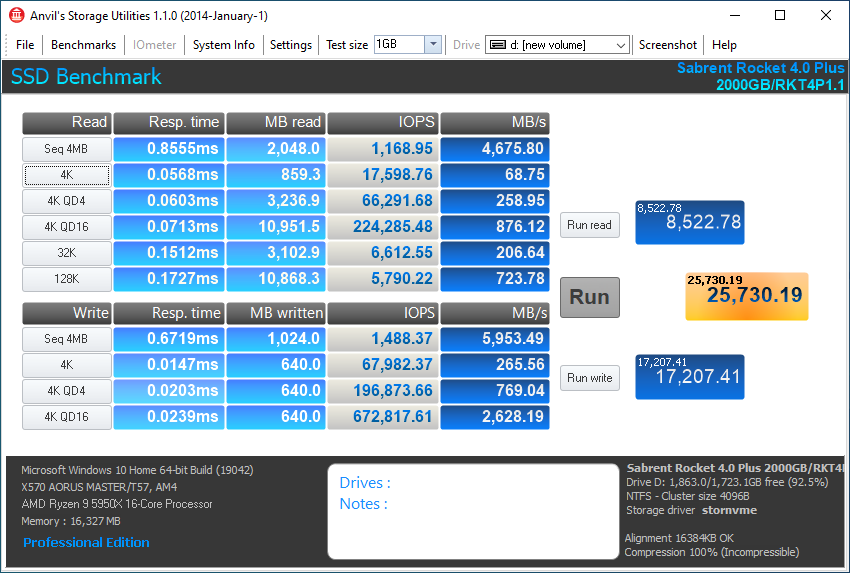
This is still a fast drive, make no mistake, but the promise of those class-leading synthetic read and write speeds don't quite translate to class-leading real-world performance. It's not far off the pace, and your own usage cases may have this in the lead—especially if you need to write out a lot of large files—but for day-to-day gaming, it has to make do with second place.
There's the question of what impact Microsoft's DirectStorage is going to have on how we use these next-generation SSDs. The technology is already in place on the Xbox Series S/X and it'll be coming to Windows this spring, but it may be a while before games developers really make the most of the new technology. In the meantime, it's reasonable to focus on the performance at it stands, and this drive is definitely up there with the best.
If you want the very best performance, then the WD Black SN850 has the edge over this drive. That drive does run hotter than the Sabrent Rocket 4 Plus though, a good 12°C hotter, something that in a cramped case would have us recommending this drive in its place. This drive is also $50 cheaper than the 2TB WD Black SN850, which makes this a better value proposition.
The Sabrent Rocket 4 Plus offers excellent synthetic performance and decent throughput in the real world, and all for a tempting price. Not quite the fastest around, but not far off.
Alan has been writing about PC tech since before 3D graphics cards existed, and still vividly recalls having to fight with MS-DOS just to get games to load. He fondly remembers the killer combo of a Matrox Millenium and 3dfx Voodoo, and seeing Lara Croft in 3D for the first time. He's very glad hardware has advanced as much as it has though, and is particularly happy when putting the latest M.2 NVMe SSDs, AMD processors, and laptops through their paces. He has a long-lasting Magic: The Gathering obsession but limits this to MTG Arena these days.
